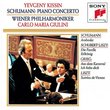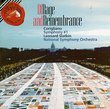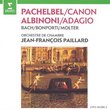| All Artists: Ludwig van Beethoven, Annie Fischer Title: Beethoven: Piano Sonatas Vol. 1 Members Wishing: 0 Total Copies: 0 Label: Hungaroton Release Date: 3/26/1996 Album Type: Import Genre: Classical Styles: Forms & Genres, Sonatas, Historical Periods, Classical (c.1770-1830), Romantic (c.1820-1910) Number of Discs: 1 SwapaCD Credits: 1 UPC: 789368328826 |
Search - Ludwig van Beethoven, Annie Fischer :: Beethoven: Piano Sonatas Vol. 1
 | Ludwig van Beethoven, Annie Fischer Beethoven: Piano Sonatas Vol. 1 Genre: Classical
|
Larger Image |
CD DetailsSimilarly Requested CDs |
CD ReviewsAs close to perfection as you can get Peter Charleton | Dublin 6, Ireland. | 06/13/2001 (5 out of 5 stars) "In 1984 I promoted my first concert in Dublin. The pianist was savaged by the local music critic and was a little upset at the injustice. He said "You know Annie Fischer thinks that I am one of the best Chopin players of the last thirty years". That was the first time that I heard her name and I wondered who it was that he spoke of with such deference. When those records came out the local and very knowledgable record store owner persuaded me to buy them. They are, each of them, a revelation. Annie Fischer(1914 to 1995) was married to another Aldar Toth, the director of the Budapest Opera, and was regarded by all the major artists in Europe as a pianist of the first rank. When her husband died , I think in 1963, she withdrew into seclusion, still playing but not prepared for the grind of a travelling virtuoso. Early pictures of her show her smiling and well capable of having a good time. Her husband had given Klemperer a job when America and everywhere else had rejected him and she was a favourite of his. You can see why from those recordings because despite the contrast between her very fast tempi and his later slow style, they both share a driving sense of forward momentum and an indefinable inner quality that can only be described as a search for the truth in Beethoven's music. Every disc in this series uncovers new facets of those great pieces. A figure that is elsewhere overlooked will suddenly be suffused with an impassioned energy, a theme that is traditionally overstated will be stripped back a little so that other elements come into their right place in the structure and the essence of thought, persuasion, and reaching out to people in hope and in complete purity of heart, that is the dynamic of Beethoven, becomes the point of those pieces. Her pianism is fantastic. There are no gaps or hesitations to try to get over impossible hurdles. Her tone is massive and singing and the Bosendorfer piano gets very close to the best of reconstructions of those of the composers day with the range of tone of a mighty modern grand. I am told she was a little lady and really thin. Well, all this proves is that real technique does not depend on corpulence." Eureka! Craig T. Niedzielski | Jacksonville, Florida United States | 12/19/2002 (5 out of 5 stars) "It was Artur Schnabel who claimed this music was better than could ever be played. After 30 years of collecting, having listened to all the greats perform this endlessly fascinating oeuvre, I would tend to agree: virtually every pianist has left room for just a little more something. Otherwise why bother collecting hundreds of performances of these vital pieces? There is always something missing that compels one to keep searching.Until now. I can tell you from my heart that, virtually without fail, every movement of every one of these sonatas had me out of my seat, fist in the air, shouting "Brava!" These are, for me, the most satisfying performances of any music in the whole range of music. Not only are they, as the notes attest, peerless, they are priceless.All who brought these recordings to fruition are to be deeply thanked. I have to think that Beethoven himself could not but smile, were he to hear these wonderful performances. Playing like this cannot have happened since he was alive.To the memory of Annie Fischer, and to the kind folks at Hungaroton: Bravissima!" Fluid and Natural grandpiano_57 | Burlington, CT USA | 06/29/2001 (5 out of 5 stars) "Annie Fischer's complete recordings of the Beethoven piano sonatas are a treasure. Recorded during the 70's, not one was released during her lifetime. However, she did approve of final takes on all 32 before she passed away and thankfully, these great performances are finally available. She has an expressive tone the displays all the nuances of Beethoven's far-reaching set. She has a knack for capturing the perfect tempo every time. I regularly return to any of these recordings, including this one, to just rediscover these superb renditions. Any in this series is a solid purchase you will enjoy again and again. And whoever said Stiff and Labored is really hearing a different set of recordings then most everyone else who has sampled this treasure chest."
|

 Track Listings (14) - Disc #1
Track Listings (14) - Disc #1





